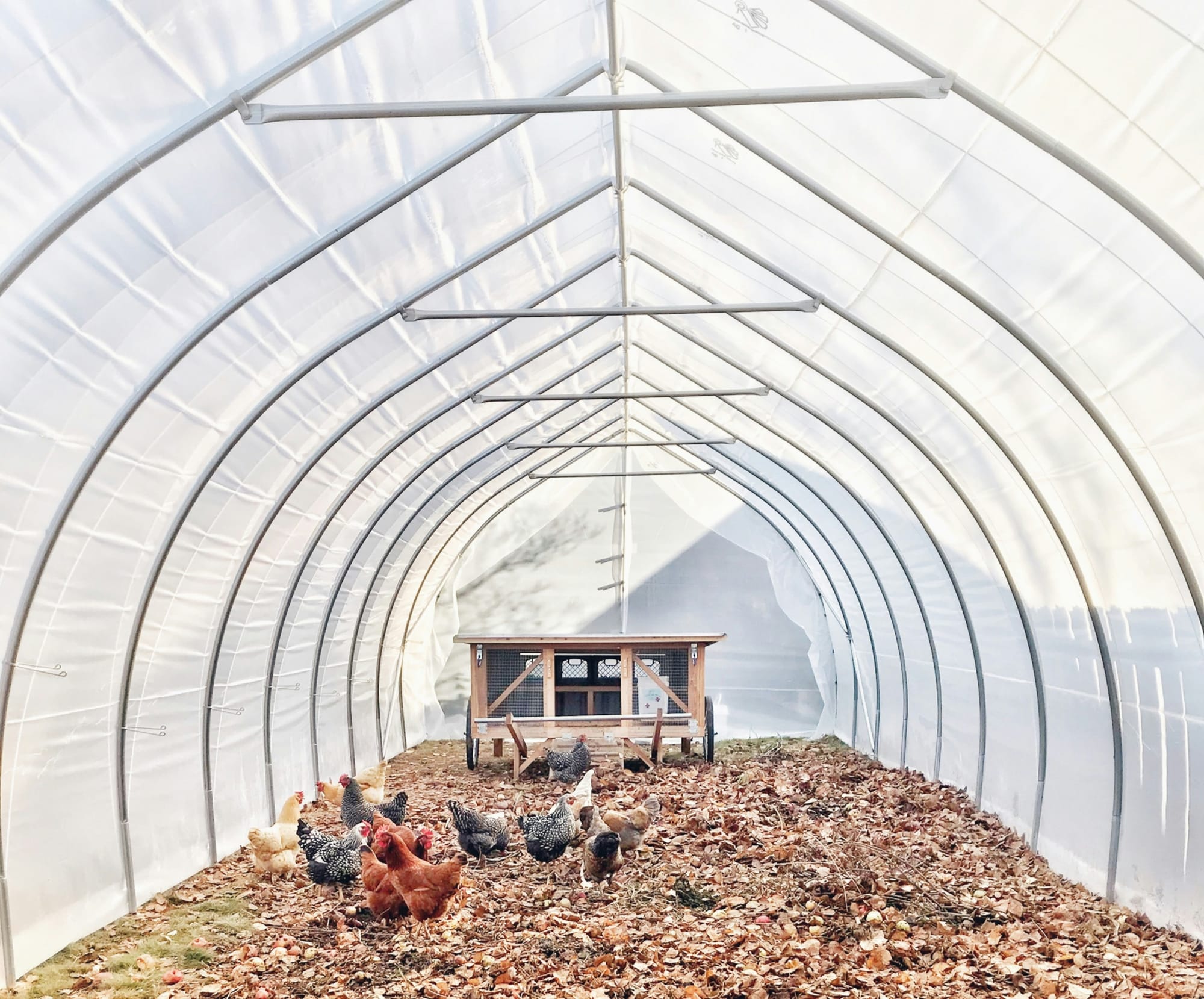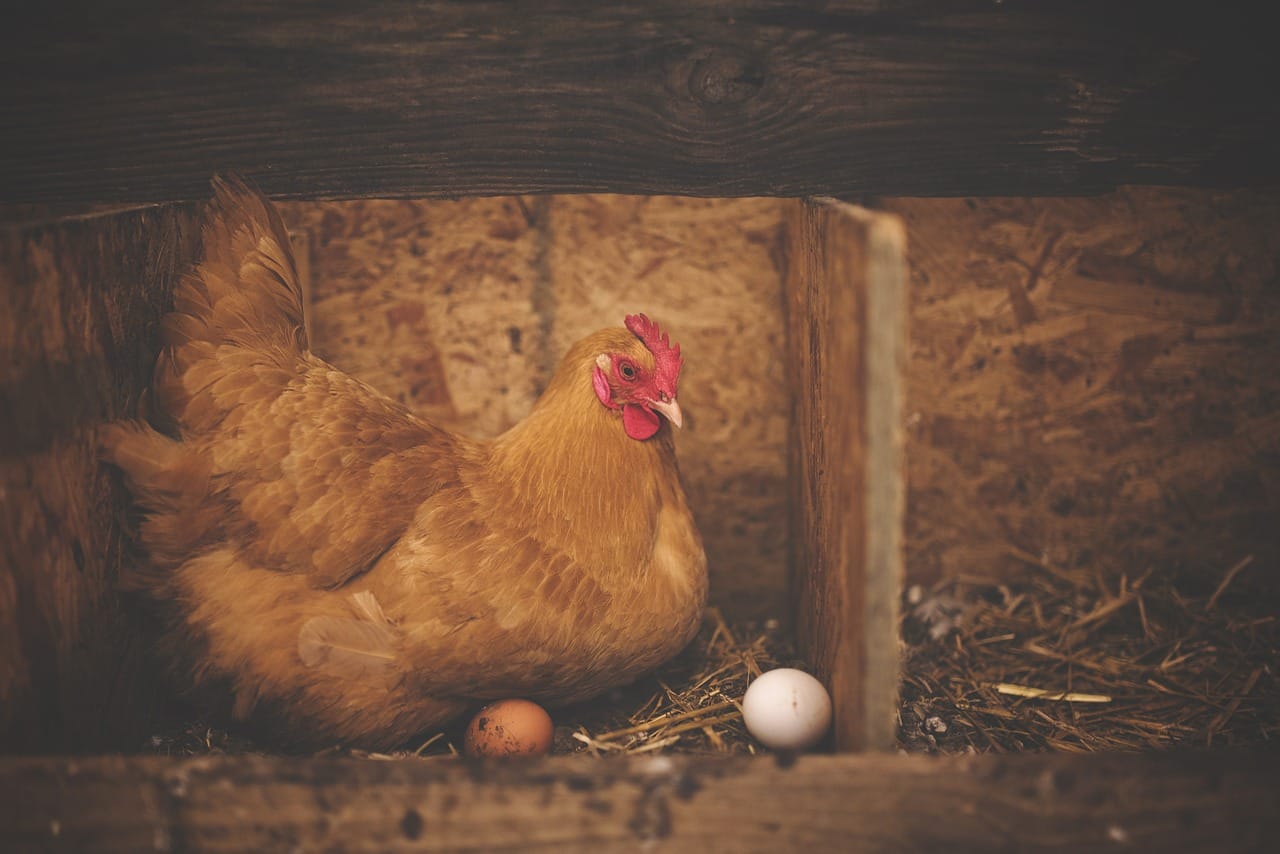Introduction to Backyard Chickens: A Beginner's Guide
We'll cover the essentials of selecting breeds, setting up your coop and run, and providing food and water. Plus, we'll tackle some frequently asked questions to help you get started on your chicken-keeping journey. PS - If you're not a reader, we also covered all this in a podcast episode!

Choosing Your Chicken Breeds
The first step in raising backyard chickens is deciding what kind of chickens you want. With over 60 breeds available, it can be overwhelming. For beginners, we recommend starting with tried-and-true breeds that are hardy and forgiving, such as Barred Rock, Black Australorp, Rhode Island Red, Buff Orpington, and Americana. Avoid exotic and specialty breeds initially as they can be less resilient.
When selecting your breeds, consider temperament, egg production, hardiness, and egg color. Temperament can vary, but chickens generally become friendly if handled frequently as chicks. Some breeds, like Rhode Island Reds, can be territorial regardless of handling, while others, like Buff Orpingtons, remain docile.
Egg production is another key factor. Excellent layers like Golden Comet, White Leghorn, and Rhode Island Blue produce up to 300 eggs annually. Heritage breeds like Black Australorp and Barred Rock also provide good egg production suitable for backyard flocks.
Climate suitability is crucial. Chickens are generally more cold-tolerant than heat-tolerant. For hot climates, avoid heavy-bodied breeds like Brahmas, which may struggle. Conversely, in cold climates, avoid breeds with large combs or wattles such as White Leghorn as prone to frostbite.

Setting Up Your Coop and Run or Outdoor Space
Your basic coop needs...
- to be safe from predation
- to be well ventilated
- to be draft free
- to have roosts
- to have nest boxes
Each chicken requires a minimum of 2 square feet indoors and 10 square feet outdoors. Roosts should be set up as ~2in wide perches while nesting boxes should be about 1.5 cubic feet and provide a dark, cozy space for laying eggs.
Deciding between a run and free-ranging depends on your environment and preference. Runs offer controlled environments, preventing chickens from wandering into neighbors' yards and protecting them from predators. However, runs are more costly and can lead to boredom. Free-ranging allows chickens to express natural behaviors like foraging but increases risks from predators and disease.
Food and Water
Chickens need constant access to fresh, clean water and a balanced diet suitable for their age and purpose. Layer feeds, typically ~17% protein, are ideal for egg-laying hens, providing the necessary calcium for eggshell production. Outdoor chickens should have access to grit to help them digest food, and egg producing birds free-choice calcium like oyster shells or recycled egg shells. Chicks under 20 weeks old should be on a starter feed, which is about ~19% protein. . Birds raised for meat should be on a meat bird (broiler) feed, which is typically ~23% protein.
For food, provide free access to feed for laying hens, adjusting as needed for specific training or health purposes. Hens typically consume about a 1/4 lbs of feed daily.

Common Issues and Solutions
Broody Hens
A broody hen has the inclination to hatch eggs and raise chicks. To break this behavior, place the hen in a small dog crate with food, water, and a roost bar to disrupt her nesting pattern. Alternatively, you can give her chicks to raise, integrating them naturally into the flock.
Introducing New Birds
Quarantine new birds to ensure they're healthy before introducing them to your flock. Allow gradual interaction through barriers until the older flock accepts the newcomers. Introducing them at night can also help.
Very Common Health Concerns
Coccidiosis: Common in warm, wet conditions and seasons, this disease can be treated with Amprolium (Corrid). Prevent it by avoiding damp areas and using medicated feed. Very common, and very treatable.
Lice and Mites: Treat external parasites with diatomaceous earth or wood ash in dust baths. For severe infestations, Elector PSP (prescription required) is effective. Destroy all old bedding
Temperature Management
Chickens tolerate cold better than heat. In cold seasons, your primary concern is water freezing and frostbite on extremities. In hot weather, provide cooling methods like misters, frozen treats, or cool water bins. Ensure your flock has adequate shade and ventilation.
Conclusion
Raising backyard chickens can be a rewarding experience, providing fresh eggs and the joy of caring for animals. By selecting suitable breeds, setting up a proper living environment, and addressing their needs, you'll ensure a healthy and productive flock. For detailed information on specific breeds and more, visit our website. Happy chicken-keeping!
